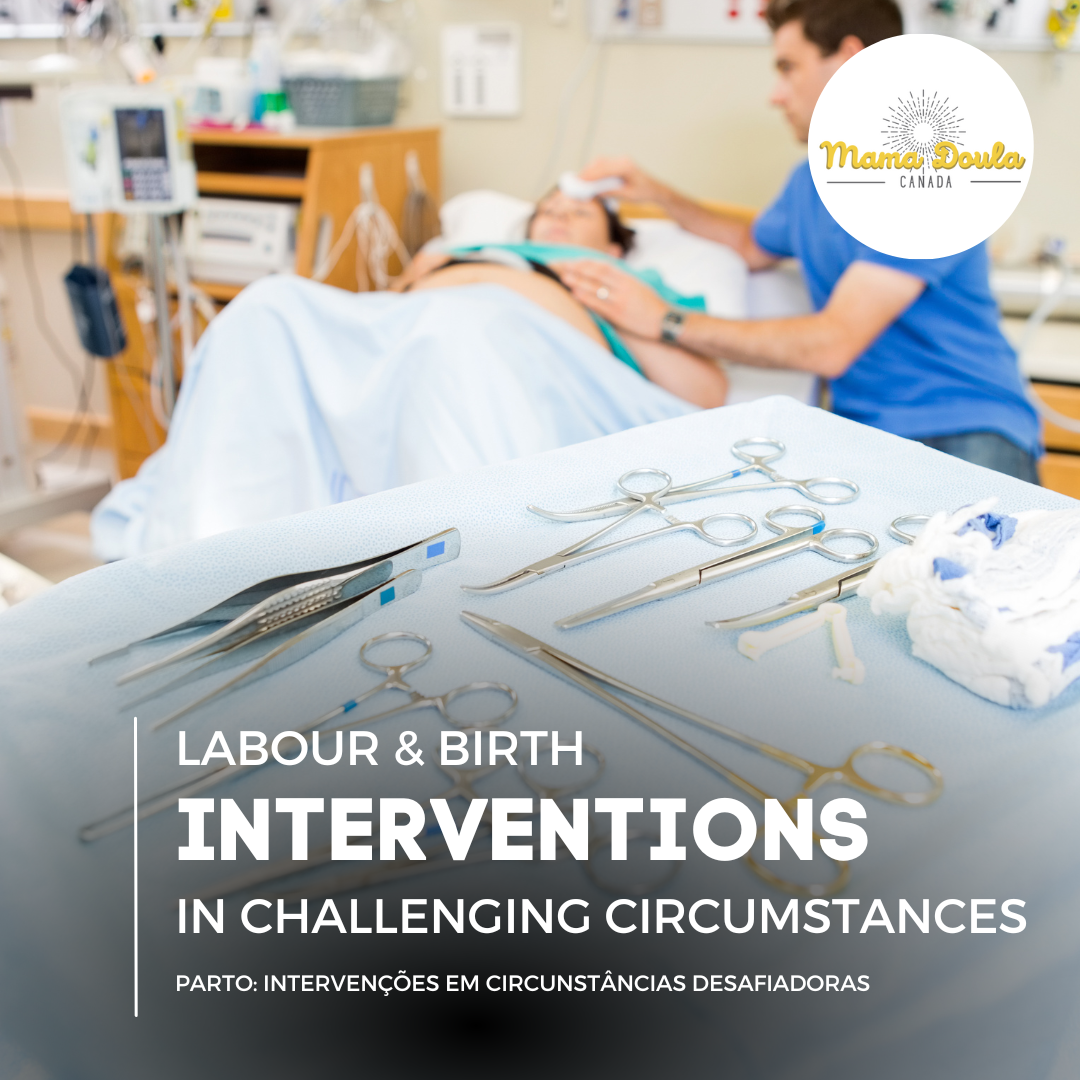Birth is a remarkable and natural process, but there are instances when the course of labour may deviate from the expected path. In such cases, interventions become necessary to safeguard the well-being of both the birthing person and the baby. In this blog post, we will explore the reasons and circumstances that may require medical interventions during childbirth. We will also highlight the valuable role that doulas play in providing support in these challenging situations.
Maternal Pathologies: Navigating Potential Risks
In some cases, the birthing person may have underlying health conditions that require careful monitoring and potential interventions. Conditions such as hemorrhage, infections, diabetes, high blood pressure, pre-eclampsia, eclampsia, and HELLP syndrome can pose significant risks to the health and safety of the mother and baby.
Data shows that approximately 10% of pregnancies are affected by gestational diabetes, while high blood pressure disorders impact around 8% of pregnancies. Pre-eclampsia, a condition characterized by high blood pressure and organ damage, affects about 5-8% of pregnancies. These statistics highlight the importance of medical interventions to ensure the well-being of both the mother and the baby.
Fetal Challenges: Safeguarding the Baby's Health
Sometimes, the baby may face challenges that require interventions to ensure a safe and healthy delivery. Lack of oxygen during labour, difficulties in passing through the birth canal, and premature birth are among the circumstances that may necessitate medical attention.
According to data, approximately 10% of newborns require assistance with breathing at birth, and around 10-15% of babies experience some form of birth asphyxia. Additionally, preterm birth affects approximately 11% of pregnancies worldwide. When that is the case, timely interventions are needed to protect the well-being of the baby.
The Role of a Doula: Nurturing Support in Challenging Circumstances
In situations where medical interventions are necessary, the presence of a doula can be invaluable. Doulas offer emotional support, help families understand the medical procedures and their options, and provide continuous reassurance throughout the birthing process.
Doulas work collaboratively with healthcare providers to ensure effective communication and informed decision-making. They can help birthing individuals and their partners navigate the complexities of medical interventions, offering comfort measures, relaxation techniques, and emotional guidance.
While doulas do not provide medical care or make clinical decisions, their presence can greatly contribute to a positive and empowered birth experience. They advocate for the birthing person's preferences, ensure their concerns are heard, and foster a supportive environment that promotes emotional well-being.
In conclusion, interventions might be needed in certain circumstances to ensure the health and safety of both the birthing person and the baby. Maternal pathologies and fetal challenges can present complex challenges that require medical attention. In these situations, doulas provide support offering emotional guidance, comfort measures, and advocacy, helping to navigate these challenging circumstances and a positive and empowered birth experience for families.
Fox, Rachael, et al. "Preeclampsia: Risk Factors, Diagnosis, Management, and the Cardiovascular Impact on the Offspring." Journal of Clinical Medicine, vol. 8, no. 10, 2019, p. 1625. doi: 10.3390/jcm8101625.

